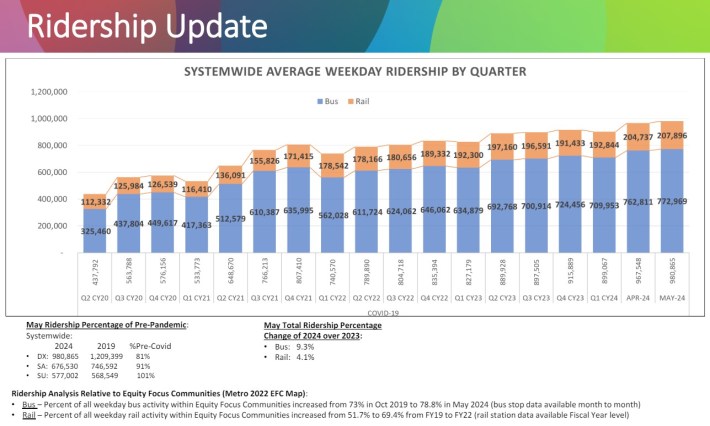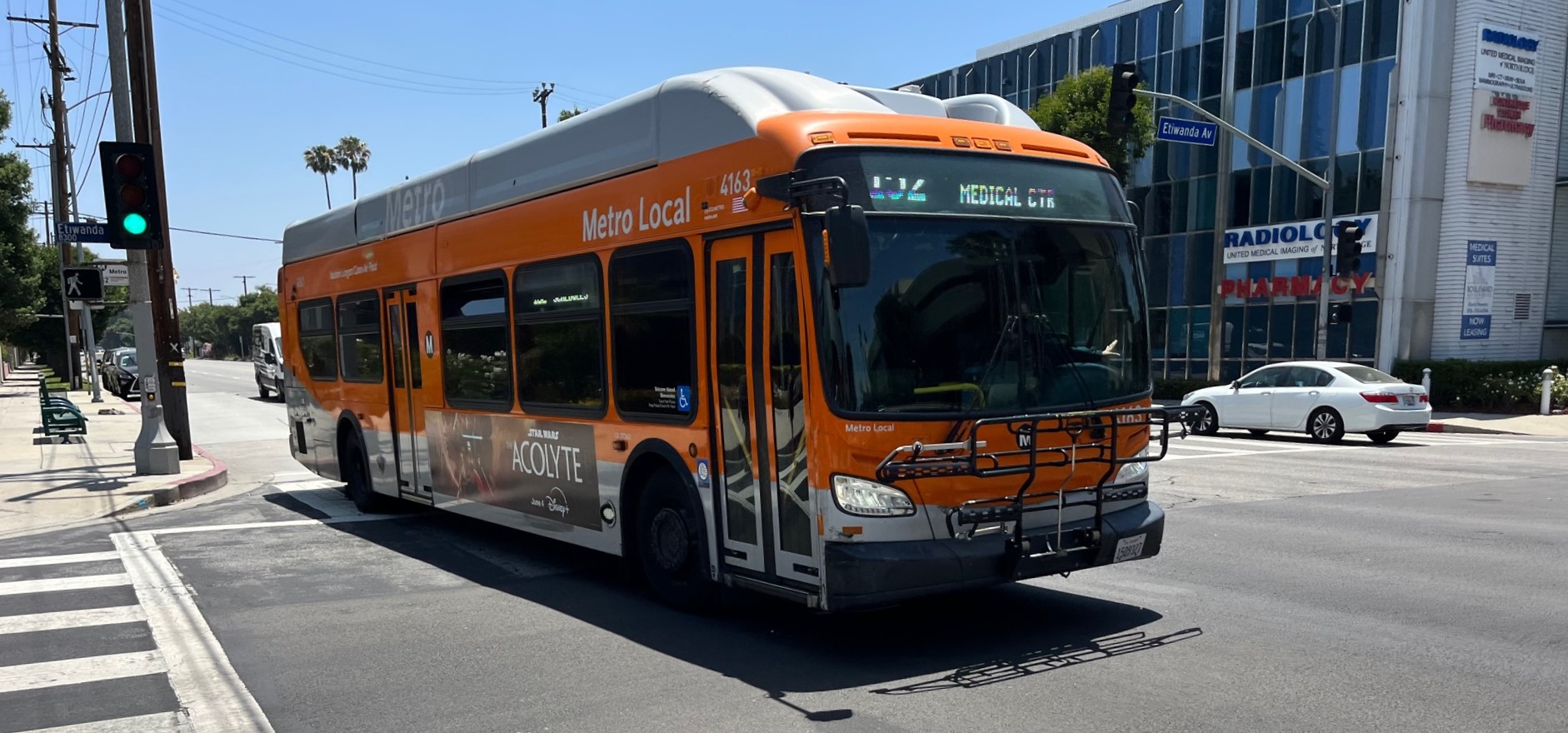Below are a few brief transit updates for your weekend reading.
Metro Transit Ridership Growing Steadily
New ridership data presented this week shows that April and May were Metro's highest COVID era months.

The three highest COVID-era ridership months are: May 2024 (980,865 weekday daily riders), April 2024 (967,548) and October 2023 (956,754). If current trends continue, Metro should be back over a million daily boardings any day now (though SBLA incorrectly predicted that would happen by April).
Metro Chief Operating Officer Conan Cheung noted that the latest ridership numbers are especially good because April ridership typically exceeds May ridership (ridership tends to dip slightly in summer and winter). Cheung announced that weekend bus ridership is currently at 104 percent of pre-COVID levels (with overall weekend rail and bus at 101 percent).
Metro continues to see steady ridership growth. For eighteen consecutive months, the current month's average daily ridership has exceeded the same figure during the same month in the prior year. This strong growth has come at a time when much of the mainstream media has derided the Metro system as unsafe.
Metro Twice-A-Year Service Shake-Up This Sunday
Metro's June service changes go into effect this Sunday.
As reported earlier, implementation of the North San Fernando Valley Transit Corridor project means San Fernando Valley riders will see increased bus service on bus lines 152 (Roscoe Boulevard), 158 (Woodman Avenue), and 166 (Nordhoff Street/Osborne Street).
Lines 265 (Paramount Boulevard) and 686 (Allen Avenue) will also see frequency improvements.
Modest service increases are also coming to lines 14 (Beverly Blvd), 62 (Telegraph Road), 81 (Figueroa Street), and 165 (Vanowen Street).
Significant routing changes are coming to Lines 76 (Valley Boulevard), 217 (Hollywood Boulevard/Fairfax Avenue), 267 (Del Mar Boulevard/Temple City Boulevard), 268 (Baldwin Avenue), and 686 (Allen Avenue - which is going away, replaced by extending line 267).
Overall total service (outside the NSFV Transit project) will remain basically unchanged, so the above increases are offset by some modest reductions in service, including cutting the first and/or last trip of the day on other lines.
Full service change details are available at Metro mybus page or at The Source.
Electric Bus Charger Issues on the G Line
At yesterday's Metro board Operations Committee meeting [video], COO Cheung reported that the agency is experiencing issues with electric bus chargers.
The Metro board mandated fully electrifying the Metro bus fleet by 2030 (Metro staff delayed this until at least 2032 and continues to pit electrification against other bus improvements). Metro dragged its heels on two modest electric bus pilots. Full G (Orange) Line electrification was scheduled for early 2020 and completed in late 2021. J (Silver) Line electrification was scheduled for 2021, then postponed to 2023, and is not yet fully realized.
To date, the only fully electric Metro bus line has been the G Line, but now the agency is backing off that pilot. Yesterday, Cheung reported, due to four electric bus chargers currently not working, Metro is sidelining six electric buses on G Line, and replacing them with CNG buses.





